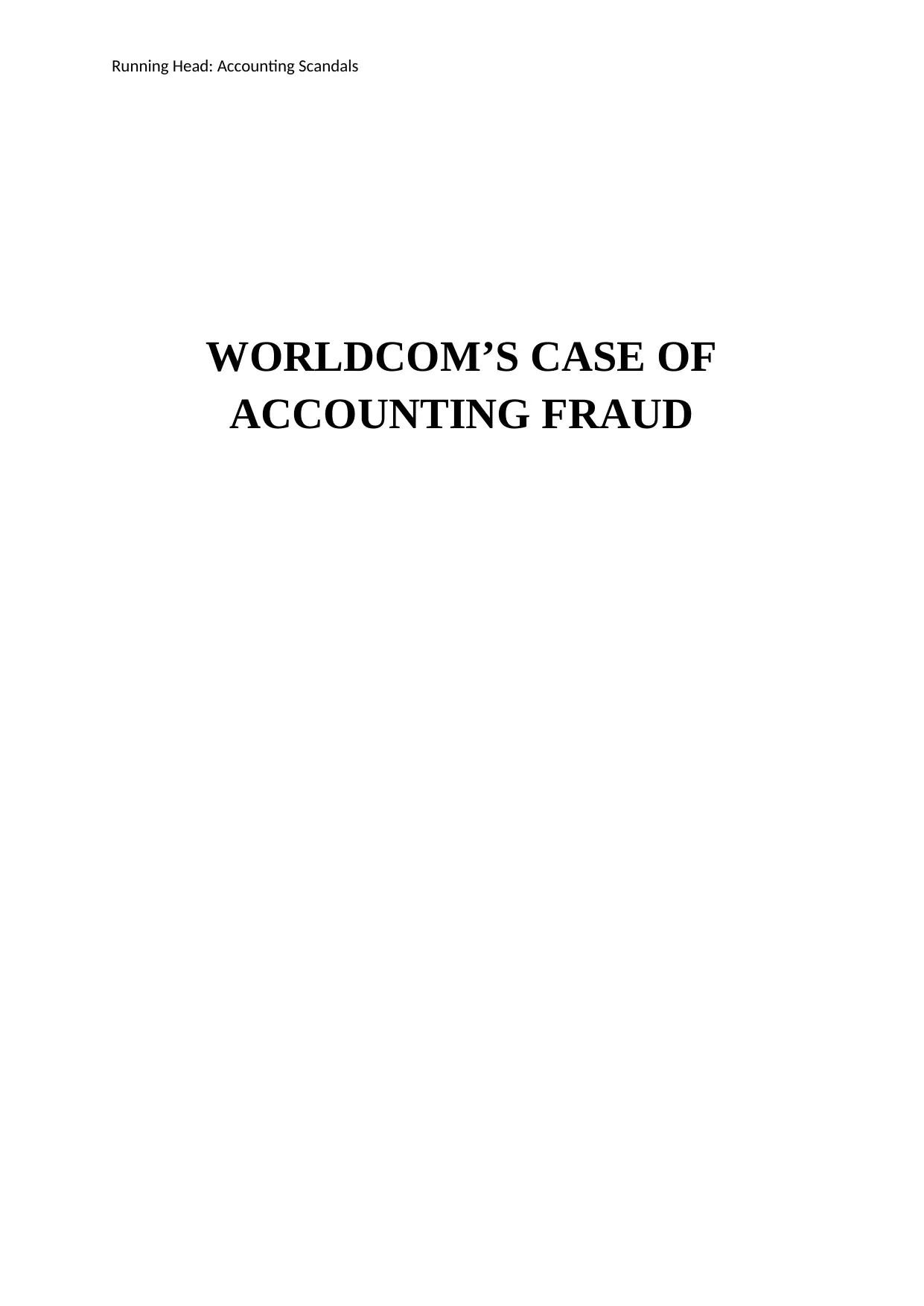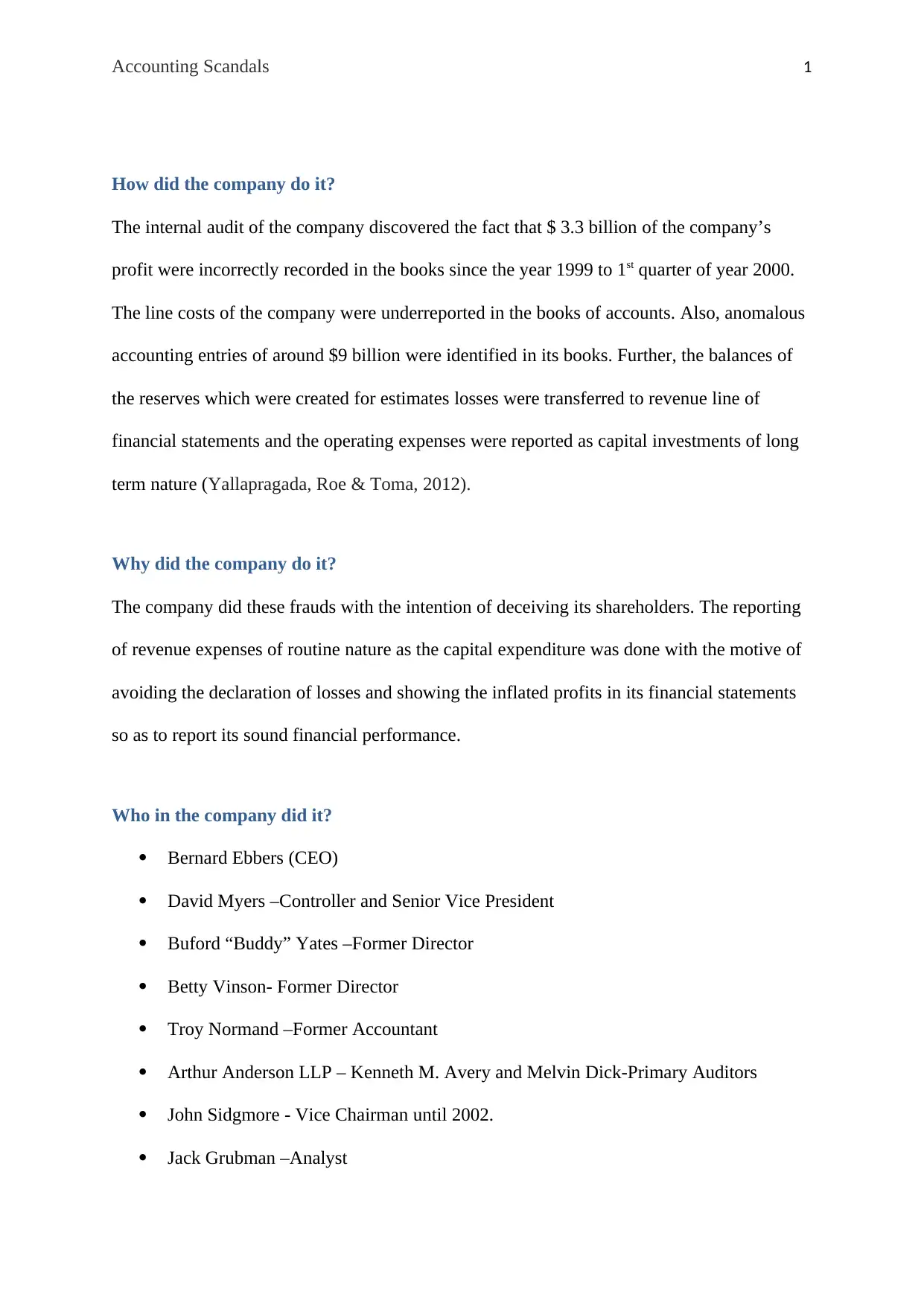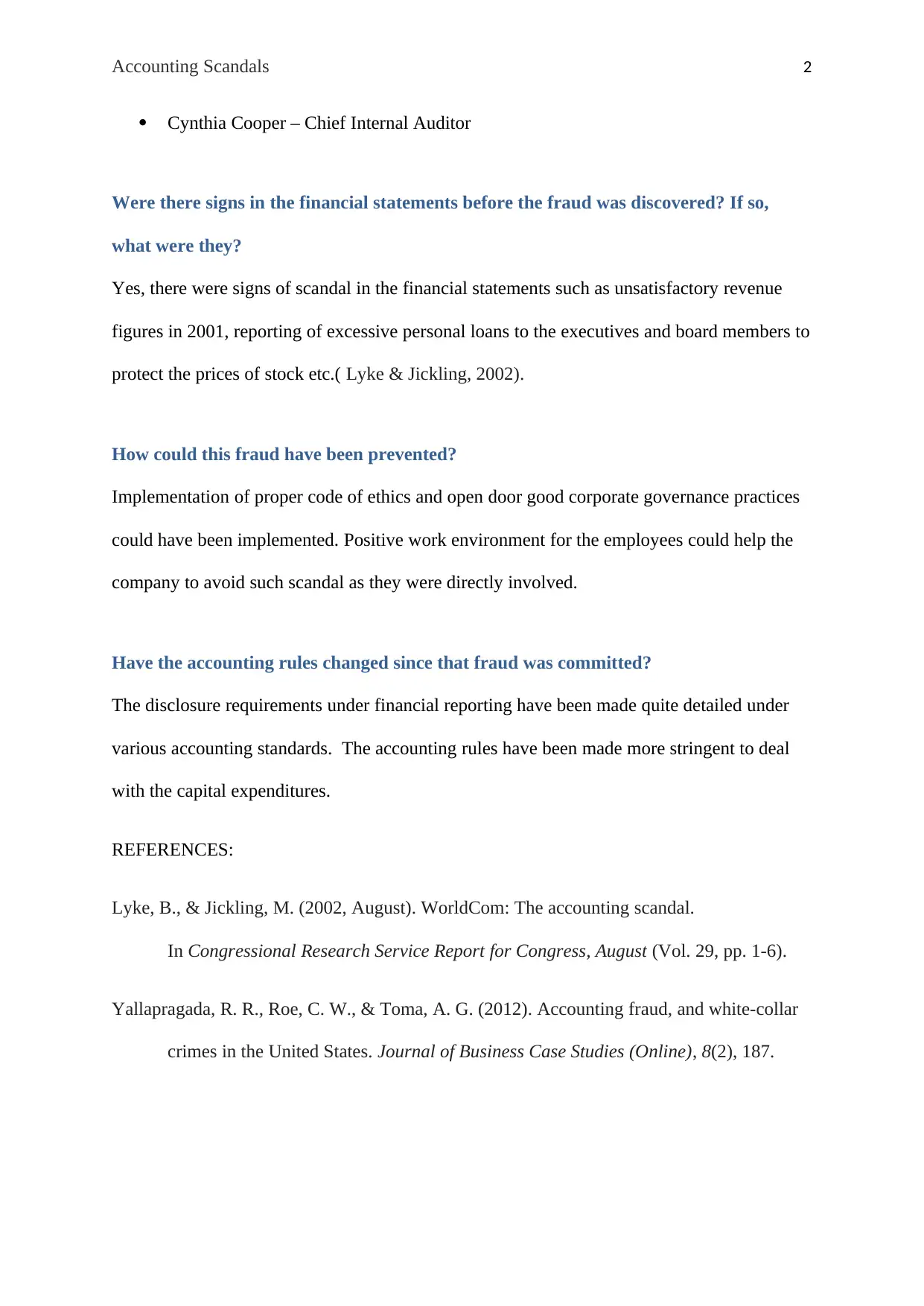WorldCom Scandal: An Analysis of Accounting Fraud and Ethics
VerifiedAdded on 2023/06/11
|3
|508
|344
Case Study
AI Summary
This case study examines the WorldCom accounting fraud, which involved incorrectly recording $3.3 billion in profits and underreporting line costs. The company misclassified routine revenue expenses as capital expenditures to inflate profits and deceive shareholders. Key individuals involved included CEO Bernard Ebbers, Controller David Myers, and external auditors from Arthur Anderson LLP. Signs of fraud were evident in unsatisfactory revenue figures and excessive executive loans. The scandal could have been prevented through stronger ethics codes and corporate governance. Post-fraud, accounting rules have become more stringent, with detailed disclosure requirements and stricter regulations on capital expenditures. Desklib provides access to similar solved assignments and past papers for students.
1 out of 3









![[object Object]](/_next/static/media/star-bottom.7253800d.svg)